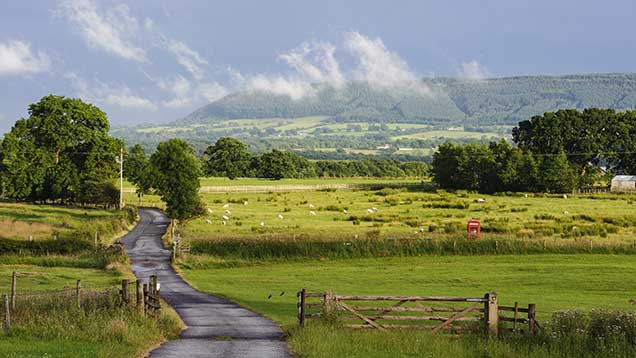Farming is ‘vital’ election issue, says NFU
 © Rex
© Rex A major campaign to put food and farming at the heart of the political debate will be launched at next week’s NFU conference.
With less than three months before a closely fought general election, the union says agriculture must not be sidelined as politicians battle it out over issues such as the wider economy, the NHS, and Britain’s relationship with Europe.
Although farming employs less than 1% of the workforce, the NFU says it is vital to the food industry, tourism and rural environment. NFU president Meurig Raymond said: “British agriculture and the future of domestic food production must be recognised as a hugely important issue.”
The NFU continues to warn that the UK has become over-reliant on food imports. Politicians should should recognise the potential to increase production, it says. The UK’s self-sufficiency in growing its own food has fallen to just 60% – down from 75% in 1991.
Food quality and provenance are also important consumer issues. Two years on from the scandal which saw beef products contaminated with horsemeat, some 88% of the UK public still believe farming is important to the economy, according to NFU figures.
Farm leaders hope one million people will register their support for the “Great British Food Gets My Vote” campaign. The initiative will be launched at the NFU’s two-day annual conference starting in Birmingham on Tuesday (24 February).
The contribution of British farming and food production to the country will be highlighted by advertisements in national newspapers. At the same time, growers and livestock producers will be encouraged to invite local MPs and parliamentary candidates on to farms.
The last Labour government was criticised for viewing farmers as land managers or “park keepers” rather than food producers. It took 13 years after the 1997 general election for
Labour to launch a food strategy which belatedly recognised the importance of agriculture.
While the Tory-LibDem coalition understandably ditched the Labour document after coming to power in 2010, it has left the UK without a food and farming strategy – unlike Ireland where farming is seen as a key economic driver.
